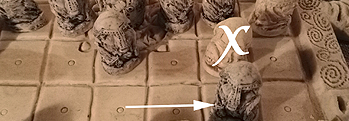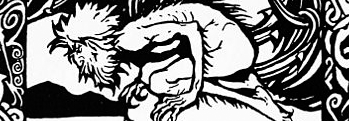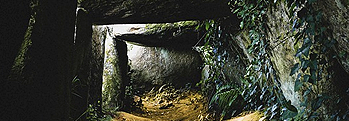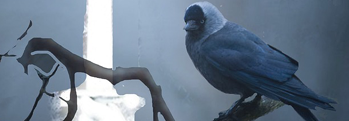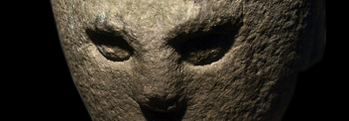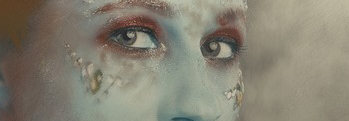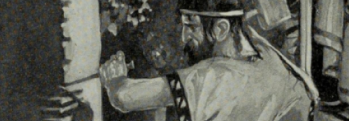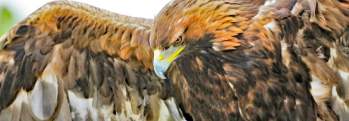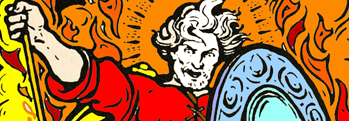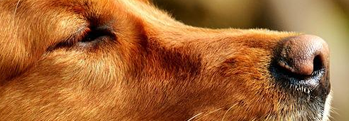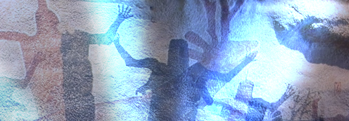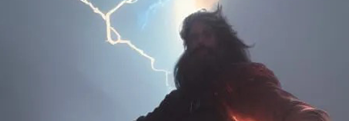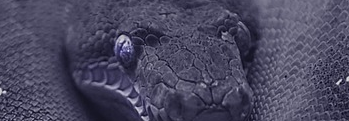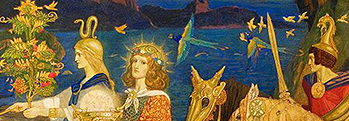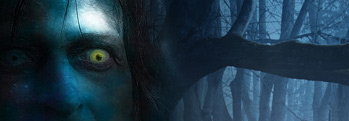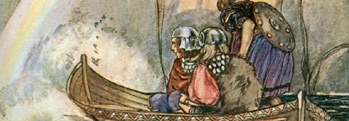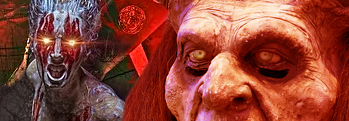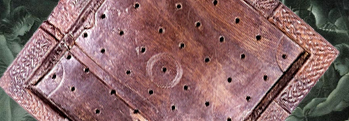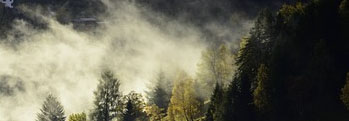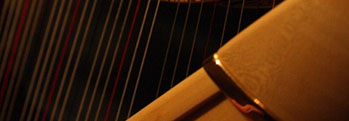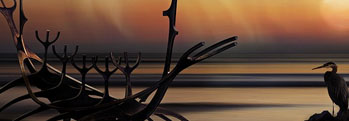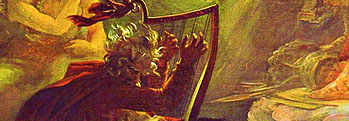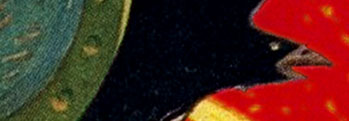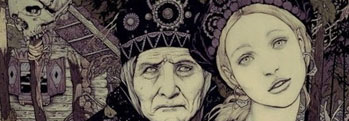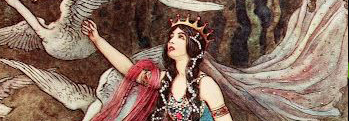The Mermaid of Lissagriffin
Irish and Celtic myths and legends, Irish folklore and Irish fairy tales from the Mythological Cycle
The one that got away
 Times were hard in Ireland not so long ago, and harder yet they were before that – many’s the family was cast out of their houses for being unable to pay their rent! One such was poor Finian O’Toole, the kindly father of nine children who found himself evicted by the cruel English landlord in the parish of Kilmoe.
Times were hard in Ireland not so long ago, and harder yet they were before that – many’s the family was cast out of their houses for being unable to pay their rent! One such was poor Finian O’Toole, the kindly father of nine children who found himself evicted by the cruel English landlord in the parish of Kilmoe.
Now it was the way in that part of Ireland, in the warmer south of the country and along the western coast, that strange things would sometimes be seen in the ocean. Dancing lights, ships of a peculiar sort, mysteries and signs floated by on those liminal currents when the year turned, and sometimes they might even wash up a mermaid, or as they were called, a Merrow!
This is the tale of one such creature, and the hard clan who moved into Finian’s house after he was kicked out.
Taking pity on him, some kindly neighbours helped Finian build a small mud cabin next to the ditch by the side of the road, and there he lived, watching the Colls, who had moved into their old house, walk past without a thought in the world. They were a tough lot with a bad reputation and were not well-liked by people in the area, not least because they moved in after an eviction.
Well Finian somehow managed to feed his family, and raised his children to be as good as he could manage, and decent enough they turned out too. But one day he was walking along the cliff edge overlooking the cove, when he paused and looked out over the heaving ocean, pondering if he might yet get on the boat across the Atlantic to America and perhaps a better life.
But on the balance he decided against it, for he couldn’t afford tickets for his entire family on the hazardous coffin ships, and he couldn’t bear to leave any behind. At least, he thought, here they were together, for better or worse.
It was a fine fresh morning after the wild storm and as he picked his way through humped masses of seaweed and stacks of driftwood, who did he see but old Coll and his son out collecting weed for their fields – so he decided to head over to the rocks, out of their way.
As he was walking, he heard a strange sound coming from a heap of seaweed, and he lifted it up to find long brown hair tangled in with the weed! He kept digging and soon two grey eyes looked back at him, while a great scaly fish-tail flapped on the strand beyond. It was one of the Merrow, washed ashore by the storm.
He saw laying beside the strange creature a silver bridle, so he took it up and left it just within reach of her pale blue fingers, then retreated behind some rocks so as not to frighten her further. But just as she was about to take the bridle, who should come around the corner but Coll and his eldest son, talking grimly.
Finian ducked down when they saw the Merrow, and they were amazed as they dug and lifted her out from beneath the shore-wrack. She begged to be let return to the sea after her horse, which had fled in terror at the storm’s fury, but they just laughed, knowing well what they had.
Chuckling, they said her bridle needed to be fixed, and wasn’t she in luck – they lived nearby and could fix it for her while she waited. Up she was lifted like a sack of spuds between them, and away she was taken.
Wrinkling his nose at their gleeful banter, Finian was about to turn away when he noticed something twinkling in the seaweed, and bending over he pulled out a beautiful silver comb, the likes of which he had never seen before, embossed with odd spirals and wave designs like you might find on the old tombs of the first people of Ireland. He said nothing of his discovery to anyone, only going home and tucking it into his straw mattress.
Over at the Coll house, the two men continued to ignore the piteous cries of the Merrow, telling her the bridle was more damaged than they thought, and it might take a while to fix it. Well they admired her pale beauty and the way her dark hair shimmered in the firelight, and while Coll senior was out hiding the bridle under iron tools in the shed, his son coughed and looked into the Merrow’s eyes.
He asked her, if she couldn’t go back to the sea, would she ever consent to marry a human? For he was bewitched by her ethereal beauty. She said that if she had to, although she would miss the sea terribly, she would only stay on three conditions.
The first was that her husband would never eat from the table of a Sheriff, that he would never kill a black sheep, and that he would never harm a seal – these were her geas after the manner of the oldest stories, her magical bonds.
Coll junior thought these were light burdens indeed to bear if in return he would gain such a beautiful and enchanting wife, so he agreed, and with a sigh she found her legs and rose to her feet.
Years went by and they had children, and no trouble was in their life only for that she would often stand by the window looking towards the sea, and hum little songs to herself, like the distant whisper of surf on a rocky shore.
The Colls were apparently blessed from the day of the wedding, as they knew was often the case with folk who had traffic with one of the Sidhe. Nothing went wrong, their fortunes increased, and despite their reputation as ruthless men, they were never caught out in any wrongdoing.
Yet in their prosperity they grew lax and began to forget the promises they had made to the Merrow, and when Coll sat at the table of the landlord’s cousin, did he know the man had just been made sheriff over the next county?
Times grew harder for all in Ireland then, as the crops began to fail and yet another famine gripped the land, but it bothered the Colls not a whit to go and steal a sheep from a neighbour for dinner. If the sheep was black, who could tell in the dark? And when sheep grew scarce, why not go and kill a seal lying fatted by the shore? There was good eating in them.
On that very night, when the wind sent the clouds scudding across the face of the carious moon, that the eldest son of Coll and the Merrow came across the silver bridle twinkling amid the tools in the back, and on that very night Finian felt a strange call, and was compelled to bring the silver comb to its proper owner.
Awakened from her sleep by a knocking at her door, Coll’s Merrow wife was awoken by a knock at her door. She found nobody there when she opened it, but looking down she spied the silver comb lying on the ground at her feet.
Smiling, she went to comb her hair in the mirror, for the first time since she had become fully human, and her heart ached greatly to swim in the ocean again. Her eldest child came to her with the bridle, and she kissed the boy softly on his forehead before going to each of her sleeping children and kissing them too.
Without further delay she took to her heels, and swift as an Atlantic gale she came to the clifftops and leaped into the seething waters below, changing into her Merrow shape as she fell. Her horse came amid the white-capped waves and she bridled it, pausing only to look behind her and stare with narrowed yellow eyes at the human settlement she had just left.
“Never again shall seven men of the name of Coll stand atop the rocks of Lissagriffin!” she spat the curse past suddenly sharp teeth, and vanished beneath the waves as lightning split the sky, never to be seen again.
I’ll tell you, from that day onwards the Colls never had a tap of luck, being caught and punished for their crimes, their crops failing and their house falling apart in a sudden storm. Eventually they had to leave and never returned, although it must be said – Finian O’Toole and his family were blessed with an uncommon series of fortunate events which left them wealthier yet than the Colls and their former landlord!
As for the Merrow, some do say that when the wind is in the west and the shore whispers just so, her voice may yet be heard calling for her children...
Lissagriffin is marked on the map below.
More Stories from the Mythological Cycle
We are delighted to be able to present to you the rules of Fidchell, the Irish game of kings! This game can be purchased, but it's easy to get started and try it out for yourself. All you need is a 7 x 7 board, which can be squares or pins marked out - even on paper - 16 white or attacker pieces, a king piece, and 8 darker-coloured defender pie ... [more]
Times were hard in Ireland not so long ago, and harder yet they were before that – many’s the family was cast out of their houses for being unable to pay their rent! One such was poor Finian O’Toole, the kindly father of nine children who found himself evicted by the cruel English landlord in the parish of Kilmoe. Now it was th ... [more]
There is a tale, one of the oldest stories among the many very ancient stories of Ireland, of a man who returned to life as a man thousands of years after he first walked the earth. His legend was found in an eleventh century manuscript called Lebor na hUidre, which means The Book of Dun Cow, and it was written there by the followers of an early ... [more]
It’s a not uncommon belief that the women of Ireland in the ancient days were quiet and kept to themselves, letting the men do all the great deeds and win all the fame – but nothing could be further from the truth! From that day to this Irish women were and remain wild and fearless, willing to go to lengths as great as any man for victo ... [more]
Of great renown are the feats and deeds of the ancient heroes of Ireland, and still to this day they echo through our legends where such tales are told. But of scarce less fame were the weapons they bore, implements of glory and terror, bound to ancient spirits and clasping lightning within their shimmering length, wielded with scarcely imaginable ... [more]
The Tuatha De Danans By the force of potent spells and wicked magic, And conjurations horrible to hear, Could set the ministers of hell at work, And raise a slaughtered army from the earth, And make them live, and breathe, and fight again. So it was written in Keating's General History of Ireland, considered by many to be the definitive ... [more]
Her name was Clíona or Clíodhna and she was one of the most beautiful women of the Tuatha Dé Danann, that vanished sorcerous race whose legends echo still from one end of Ireland to the other. Some even say she was the most beautiful woman in the world, and she was worshipped as a goddess by the pagans of Ireland who followed t ... [more]
Many are the tales told of Lugh, the mightiest king of that ancient and mystical sorcerer race of Ireland, the Tuatha Dé Danann, but only one is told of his death. Now Lugh, lord of many warriors, had four wives, which back in those days wasn’t too unusual, and their names were Echtach, daughter of white-toothed Dagda, Englec, Ná ... [more]
Just as happens today, people in ancient Ireland had legal disputes and complaints they would bring before their courts, and the judge or king would try to make sense of what had happened and hand down a fair decision. But also just as happens today, there were situations where it was one person’s word against another, or there wasn’ ... [more]
The old stories of Ireland, some of the oldest in the world, tell of great ancients – almost immortals! – whose span of life stretched many thousands of years. Legends tell of their spirits passing from one body to the next, or upon occasion, staying in the one body for millennia, watching the tides of man and beast come and go. Such ... [more]
One of the chiefest and most powerful kings among the mystical Tuatha Dé Dannan was the one called Dagda, or Dagda Mór, which means “of shining skills”. He had other names too, such as Eochu the horseman, Ruad Rofhessa, lord of great knowledge, Dáire the fertile one and Aed, he of the fiery temper. Others yet called ... [more]
The Irish Brehon law codes are said to be the earliest fully developed legal system in Europe, but long before the Brehons were laid down there were earlier laws and all were subject to them, from the lowest to the highest! Women could hold their own property, were not themselves considered property, and could seek an education and improve their ... [more]
No tale of ancient Ireland could be complete without mentioning the Fomorians, dreaded foes of the Tuatha Dé Danann and all who came to conquer Ireland. The meaning of their name is debated even today, although most agree that the first part, fó, means “from below” or “nether” and the latter part means “t ... [more]
Many of the oldest records of Irish mythology and legend, which you might truthfully say are a history of prehistory, tell that the first people to arrive in Ireland were led by the lady Cessair when she fled to this land to escape the coming flood. The idols which had whispered through veils of midnight smoke that Ireland was a land untouched by p ... [more]
Throughout the old stories of Ireland are scattered mentions, and sometimes even descriptions, of some of the spells and rites used by both the Tuatha Dé Danann and those who came after them, the Gaels or Milesians, as they are sometimes known. Tales of these wondrous and mysterious feats of sorcerous skill may seem strange to us, but to the ... [more]
It was a warm and balmy summer's night, heavy with the fragrances of heather and honeysuckle, when Aengus, son of Dagda, awoke to find a beautiful young woman approaching him where he had slept. He was immediately taken with her grace and elegance, and his heart yearned for her, but when he tried to speak, she vanished! He stayed in his bed ... [more]
The river Barrow, like many rivers in Ireland, was given its name in ancient times. Few now know it once had another and very different name however, for it was when Dian Cécht walked the world, the healer of the Tuatha De Danann, that this river was first named! Dian Cécht, whose name meant swift power or swift potion, depending o ... [more]
A thousand years before the Olympic games were founded, the Tuatha De Dannan had arrived in Ireland and defeated the Fir Bolg, establishing their place on the Emerald Isle. The mighty queen Tailtiu had married Eochaid mac Eirc of the Fir Bolg, but he was killed during the invasion of Ireland by the Tuatha, so the leader of the invaders took her for ... [more]
In ancient times the Gaels would hold great festivals at different seasons of the year, such as the Tailteann Games, Tlachtga, Raigne and Lughnasadh, and it was at the beginning of August, every three years, that the festival of Carmun would be held during the festival of Lugh. Mighty were the celebrations held, with the racing of horses and the ... [more]
Long ago it was the time of the Tuatha De Danann in Ireland, and they were troubled by strife from beyond the Emerald Isle and within it. One of their mightiest warriors whose name was Lugh of the Long Hand heard that their demonic enemies from the sea, the Fomorians, had landed at Eas Dara, so he hopped up on Aonbharr, a horse which could gallop a ... [more]
Some of the most ancient Irish myths and legends tell of the Bocanachs and the Bananachs, known to the people of Ireland as fierce spirits of the air that were drawn to scenes of battle and bloodshed. Whenever armies gathered to test their might, the sky overhead would be filled with shrieking demons dancing to the sounds of swords clashing and blo ... [more]
Woven through many Irish stories, myths and legends is the ancient game of Fidchell, which means “wisdom of the wood”. It's said that it was invented by none other than Lugh of the Tuatha De Dannan, and predates chess by many centuries. Fidchell held a central role in the celebrations of Lugh, and at Samhain festivities as well, ... [more]
Well known is the ancient tale of the Children of Lir, and how two of the three of Bodb Dearg's daughters by Oilell of Aran married Lir to keep the peace in Ireland, between the rival chieftains of the Tuatha De Dannan. But less well known perhaps is the story of the daughter of the Bodb and one of her admirers, Cliach the Harpist. Cliach pl ... [more]
After the second battle of Moy Tura, Nuada the High King of the Tuatha De Danann was grievously injured, and as it was the law among their people that a king must be whole of body, Dagda Mór took his place. Mighty Dagda, of whom the ballads are sung, he was called the father of the Tuatha, the lord of knowledge, the many-skilled, th ... [more]
It is in the nature of fairytales and legends passed down from generation to generation that they might sometimes change and shift to fit the lives of the people of the time, and the more mysterious the figure the more legends accrue to it! And so it is with Donn of the Dead, king of the dead at the red tower of the dead, whose three sons cried &ld ... [more]
It was at the dawning of the world when the fair folk walked in broad daylight as bold as you and I, before the coming of the Milesians with their bitter iron blades and earthen ways, it was the time when magic was wrought and druidry had power, when heroes gave battle to gods and the titanic children of Seth still troubled the dreams of Heaven, it ... [more]
The raven has long been an omen of ill-tidings around the world, bearer of bad news and warnings, but in Ireland it was known once as a servant of the fairy Morrigan, or the raven was herself in person! She it was whose name meant the Great or Ghost Queen, from the old words for fear and greatness. Some will tell you earnestly that she was a god ... [more]
Long ago, in the time of the Tuatha Dé Dannan, one of their number became the high king of all Ireland, and his name was Eochaid Ollathair. He was a powerful magician of that sorcerous race, and by his workings he could change the weather and ensure the harvest was plentiful, as well as many other things. His wealth was vast and he was mu ... [more]
It was in the time of legends and heroes, when the Tuatha Dé Dannan had determined to go into their deep halls beneath the hills and mountains of Éireann the green, that the Dagda mór had fallen at the second battle of Moy Tura. With his slaying a new leader had to be elected and that was decided by the Tuatha to be the Red Cro ... [more]
And so it was when dragons still flew and champions walked the earth that the men of the Fir Bolg had lordship over all of Ireland. They had left Ireland centuries before due to the violence and heavy tribute demanded by the Fomorians, travelling far and wide until they came to the distant land of Greece. Although they made agreement and treaty ... [more]




